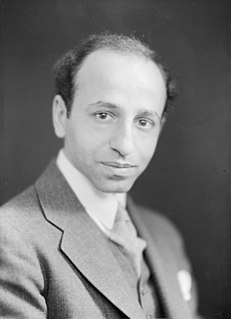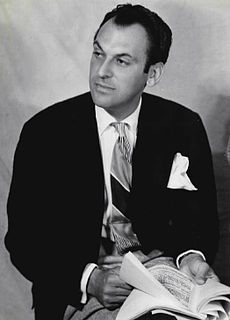A Quote by Benjamin Franklin
Most people dislike vanity in others, whatever share they have of it themselves; but I give it fair quarter, wherever I meet with it, being persuaded that it is often productive of good to the possessor, and to others who are within his sphere of action: and therefore, in many cases, it would not be altogether absurd if a man were to thank God for his vanity among the other comforts of life.
Related Quotes
Every man is of importance to himself, and, therefore, in his own opinion, to others; and, supposing the world already acquainted with his pleasures and his pains, is perhaps the first to publish injuries or misfortunes which had never been known unless related by himself, and at which those that hear them will only laugh, for no man sympathises with the sorrows of vanity.
But even if we were to disappear, people would still be divided into people and Others. No matter how those Others were different.People can't get by without Others. Put two people on an uninhabited island, and you'll have a human being and an Other. And the difference is that an Other is always tormented by his differentness. It's easier for people. They know they're people, and that's what they ought to be. And they all have no choice but to be that way. All of them, forever.
So if the worth of the arts were measured by the matter with which they deal, this art-which some call astronomy, others astrology, and many of the ancients the consummation of mathematics-would be by far the most outstanding. This art which is as it were the head of all the liberal arts and the one most worthy of a free man leans upon nearly all the other branches of mathe matics. Arithmetic, geometry, optics, geodesy, mechanics, and whatever others, all offer themselves in its service.
James often wondered at the chain of flukes it must have taken to bring him through with his own life and limbs intact. Once he might have believed it to be the work of Providence but it seemed to him now that to thank God for his life would be to suggest God had shrugged off all the others flicked them away like cigarette butts by the thousands and that seemed like abominable conceit. James Dorsey took no credit for being alive. His higher power these days was Chance.
I believe that the unity of man as opposed to other living things derives from the fact that man is the conscious life of himself. Man is conscious of himself, of his future, which is
death, of his smallness, of his impotence; he is aware of others as others; man is in nature, subject to its laws even if he transcends it with his thought.
There is no more reason to accuse ourselves excessively of our failings than to excuse them overmuch. He who goes overboard in self-criticism often does so in order not to suffer others' criticisms, or else does so out of a kind of vanity that wishes to make others believe that he knows how to confess his faults.
































